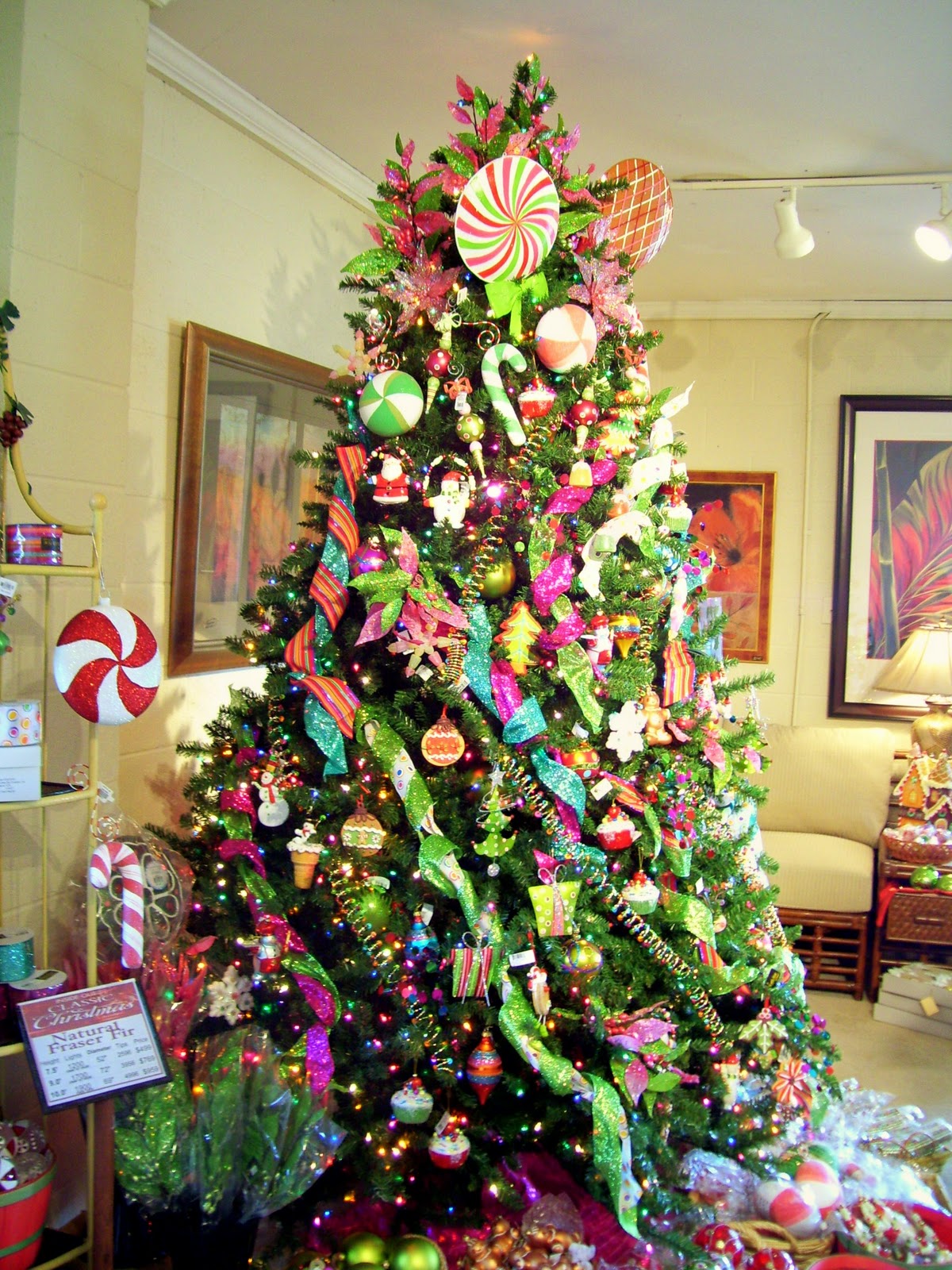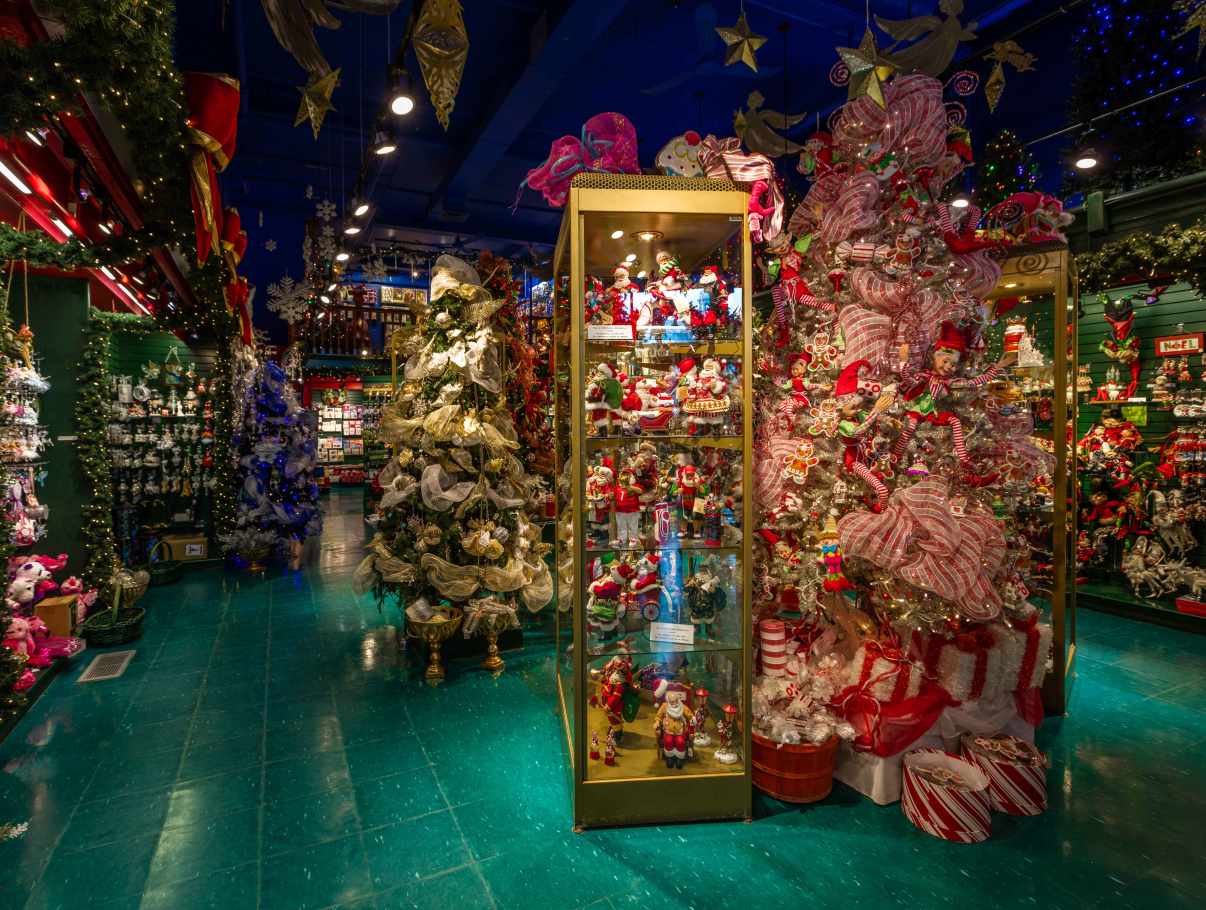Unveiling the Tradition: Why We Decorate Christmas Trees

Christmas, a time of year that resonates with joy, warmth, and festivity, brings with it a plethora of traditions, one of the most cherished being the decoration of the Christmas tree. This beautiful custom, observed by millions around the world, encapsulates the spirit of the season in a single, enchanting centerpiece. But have you ever wondered why we decorate Christmas trees? This post will delve into the origins of this practice, its evolution over time, and the rich symbolism that makes it an enduring symbol of Christmas cheer.
Historical Roots of the Christmas Tree

The tradition of decorating trees during winter festivities traces back to ancient civilizations:
- Ancient Romans during Saturnalia, a festival in honor of Saturn, would decorate trees to celebrate the renewal of light and life.
- Scandinavian cultures used evergreen trees to signify the continuation of life through harsh winters.
- Pre-Christian Germans worshipped trees, particularly oak, but during winter, they shifted to decorating firs and pines as part of their seasonal ceremonies.
The Medieval Transition

In the medieval era, as Christianity spread across Europe:
- Monasteries began using evergreen boughs as a symbol of eternal life, integrating pagan elements into Christian celebrations.
- The Paradise Play in religious drama, which depicted the creation of Adam and Eve, often used an evergreen tree to symbolize the Tree of Knowledge, marking an early association of trees with Christian imagery.
The Modern Christmas Tree

The modern tradition we recognize today began in the 16th century:
- Martin Luther, a key figure in the Protestant Reformation, is often credited with adding lights to the tree, inspired by the starry winter night. He brought a tree indoors and decorated it with candles to recreate the awe he felt.
- In the Victorian era, Queen Victoria of England and Prince Albert, who was German, popularized the Christmas tree in Britain, making it a widespread custom by the mid-19th century.
Symbols and Decorations

The items used to decorate Christmas trees have evolved, each carrying significance:
| Decoration | Symbolism |
|---|---|
| Candles/Lights | Represent Jesus as the Light of the World |
| Bells | Announce the arrival of Christ |
| Stars | Symbolize the Star of Bethlehem |
| Candy Canes | Resemble the shepherds' crooks |
| Holly and Berries | Symbolize Christ's suffering (the holly leaves) and blood (the berries) |

💡 Note: The true colors of holly berries range from bright red to orange-red, signifying the life-giving blood of Christ.
The Tree's Evolution

Over the centuries, the Christmas tree has seen many changes:
- From simple branches stuck in the ground, the tree moved indoors.
- Decorations evolved from edible items to handmade ornaments and then to commercial ones, reflecting changing societal habits and technology.
- The introduction of electric lights in the early 20th century revolutionized how trees were decorated, enhancing safety and aesthetics.
Why We Decorate

Decorating a Christmas tree serves multiple purposes:
- It symbolizes hope and renewal, with its evergreen nature representing eternal life.
- It fosters family bonding, creating traditions and memories.
- It celebrates the season of giving, love, and community.
In wrapping up, we can see that the Christmas tree is more than a festive decoration; it’s a symbol rich with history and meaning. From ancient pagan rituals to modern-day families, decorating the tree unites us, instilling joy, and invoking the spirit of Christmas through its timeless traditions and symbols.
When did the Christmas tree tradition start in the United States?

+
The Christmas tree tradition in the United States was popularized in the 19th century, especially after Prince Albert introduced it to Queen Victoria in England, whose influence then spread to America.
Why do we put stars or angels on top of the Christmas tree?

+
The star symbolizes the Star of Bethlehem, guiding the way for the three wise men to baby Jesus. Angels are often placed to represent the announcement of Christ’s birth to Mary.
What materials were traditionally used to decorate Christmas trees?

+
Early decorations included apples, nuts, berries, and popcorn strings. Over time, people began using paper ornaments, handcrafted items, and, with industrialization, mass-produced ornaments.
Is there a specific time to put up a Christmas tree?

+
Traditionally, Christmas trees are set up on the first day of Advent, though many families choose to wait until closer to Christmas or when it feels like the right time to celebrate.



